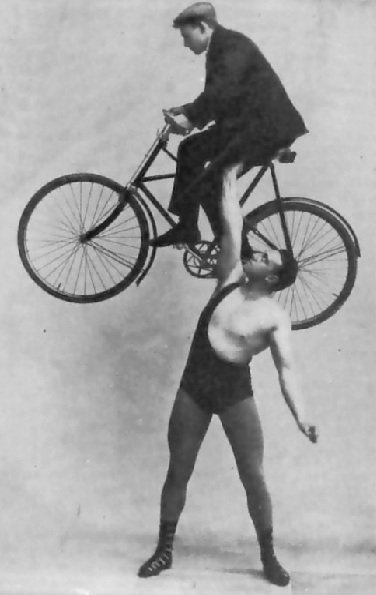I will NEVER promote a product or person I do not believe in. That being said when you click links to other sites found on this site I may be paid commissions if you purchase anything from them.
Legendary Strength is not liable for any injuries or damages that individuals might incur by attempting to perform any of the exercises or feats of strength depicted or discussed on this website. Any individual attempting them does so at their own risk. Consult with your physician before changing your exercise regimen or diet.

Comments
I’m sure Thomas Inch was a fraud, but I suspect he was also very strong and no more of a fraud than most in his era. Consider the similar role of professional wrestlers during the same period: Most of their matches were works (fake) but they still tended to have a good grasp of how to wrestle and were talented at putting on “punishing holds”.
As I understand it, Inch was some sort of a weight llifting champion prior to his professional career, so it might have been nive for him to talk a bit more about the lift of the era and their uses. Bovril is no longer considered a health product, and (assuming he wasn’t being paid by Bovril) it’s recommendation puts into perspective the amount of supplements a “serious” trainee today finds themselves taking.
What I liked about Inch was that he made a point of small hands not being an excuse for a weak grip. People still make to much of an issue of this today, for example “Thick bar stuff isn’t proper grip training, it’s too dependent on bar size.” Now let’s use Jedd Johnson for an example: Jedd has on of the strongest pairs of hands in the world, and they are very large, and so the same people who like to use excuses say “Yeah it’s easy for him, his hands are bigger than mine”. What’s Jedd’s weakest area? His thick bar stuff.